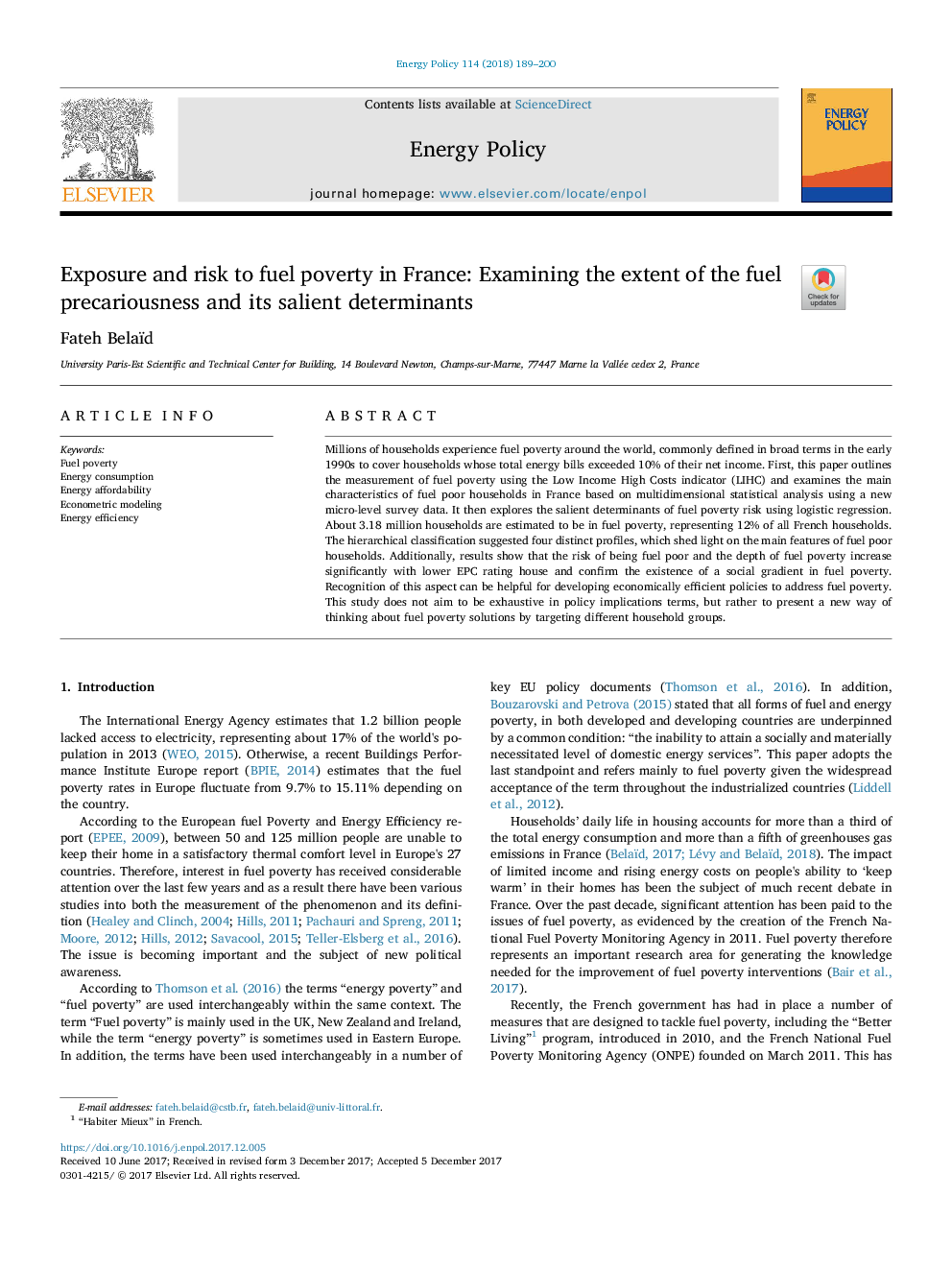ترجمه فارسی عنوان مقاله
قرار گرفتن در معرض و خطر فقر در فرانسه: بررسی میزان ناپایداری سوخت و عوامل تعیین کننده آن
عنوان انگلیسی
Exposure and risk to fuel poverty in France: Examining the extent of the fuel precariousness and its salient determinants
| کد مقاله | سال انتشار | تعداد صفحات مقاله انگلیسی |
|---|---|---|
| 129586 | 2018 | 12 صفحه PDF |
منبع

Publisher : Elsevier - Science Direct (الزویر - ساینس دایرکت)
Journal : Energy Policy, Volume 114, March 2018, Pages 189-200
ترجمه کلمات کلیدی
فقر سوخت، مصرف انرژی، مقرون به صرفه انرژی، مدل سازی اقتصادی بهره وری انرژی،
کلمات کلیدی انگلیسی
Fuel poverty; Energy consumption; Energy affordability; Econometric modeling; Energy efficiency;

